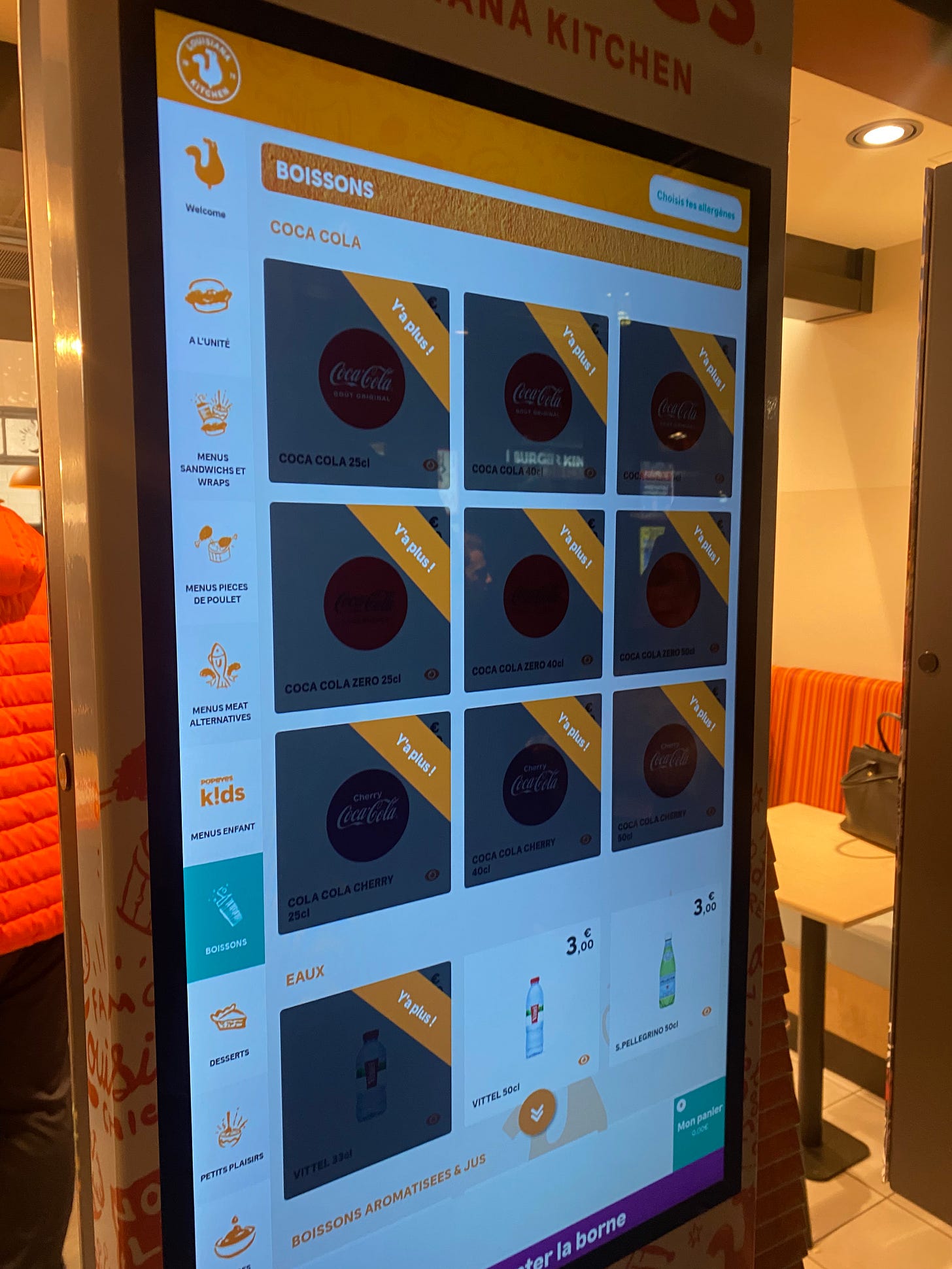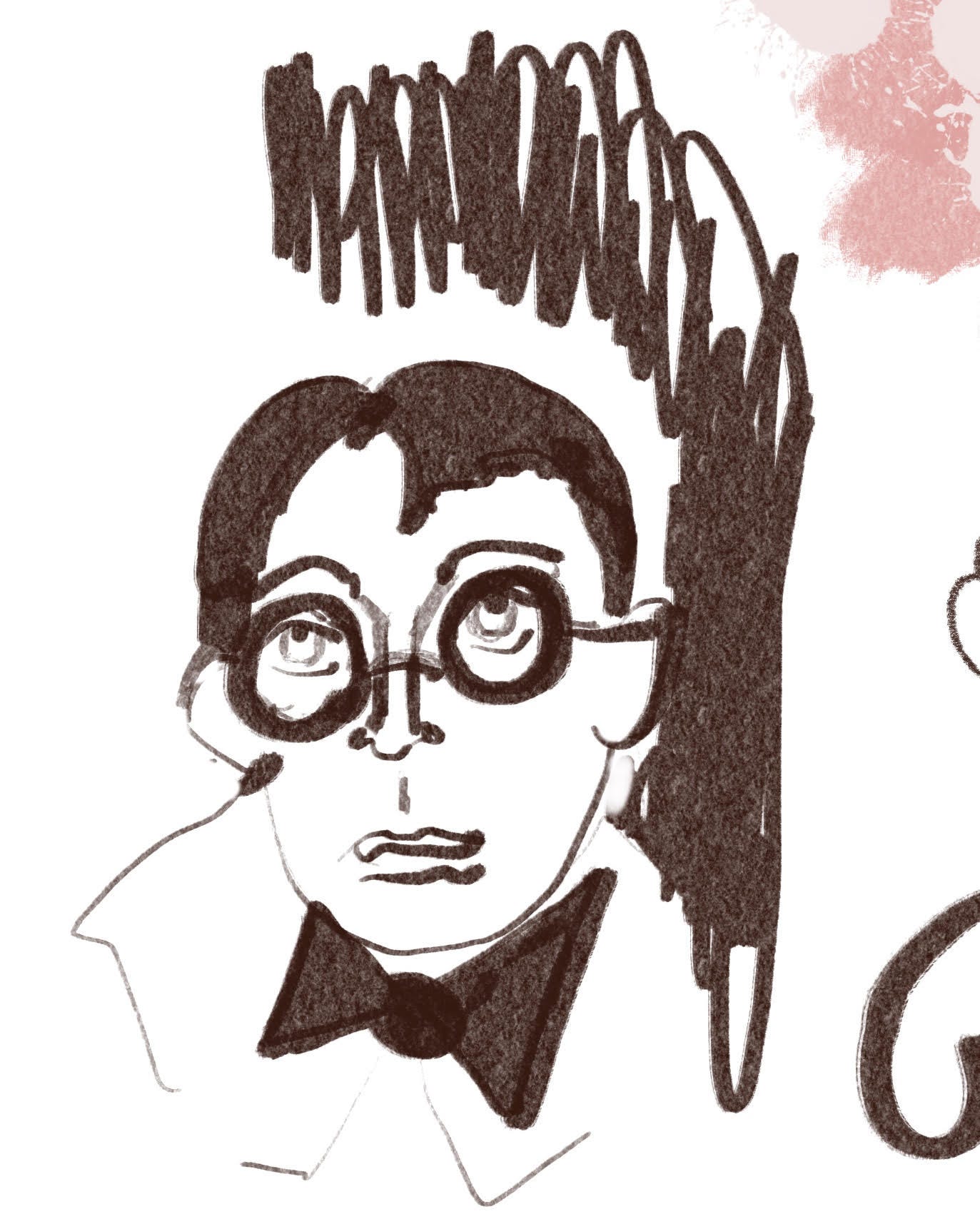Dear Friend,
I hope you’ve had a good week. It’s been very cold in Paris, but there were also a couple of days with very blue skies, giving us a delicious little hint of spring to come (my favourite season here).
Last week I wrote about Le Salon de l’Agriculture, the huge annual agricultural fair held on the southern edge of Paris, and how it represents the meeting of two worlds: the powerful capital and the characterful regions.
Nathan, a Pen Friend in Melbourne, replied asking if France has the same “insanely dense amount of local accents as the UK”. I think the answer to this is probably ‘no’ – there’s not the wild variation heard even within a small area e.g. Manchester and Liverpool, Birmingham and Stoke-on-Trent.
Last year I wrote a little bit about accents in France as contribution to a piece for Telegraph Travel about accent snobbery across the world. Here’s what I said:
Having lived outside the UK for a few years now, I have become more aware of just how much our society is obsessed by class. Brits are constantly making micro-judgements about someone’s social background based on clues like where they go on holiday, what they call the evening meal and the accent with which they speak.
There’s not the same level of class policing in French society, nor the range of accents we have in the UK — but stereotyping and judgement based on accent certainly does exist.
This kind of discrimination is known in France as ‘glottophobie’ and in 2020 a bill aiming to include accent as a cause of discrimination punishable by law, alongside race or disability, was adopted by an overwhelming majority by the French parliament.
Here, if someone speaks like a bourgeois Parisian, they are considered to speak “sans accent” or without an accent, similar to the perception of RP in the UK. This goes back hundreds of years, to when King Louis XIV formalised the unified French language, administering a slow death blow to the country’s regional dialects in the process. However, if the languages are largely out of use, regional particularities live on through the accents. The accent of the south is the most markedly different to the ear, notably for its strong nasal vowel sounds. For example, take the word for bread ‘pain’— in Parisian French it’s pronounced a bit like ‘pan’, but breathier, whereas in a southern accent, it would sound something closer to ‘peng’. Studies have shown that southerners who speak with a strong accent are considered less intelligent and serious than those who speak with the Parisian accent. However, the southern accent is generally considered more friendly and approachable. The perhaps most maligned way of speaking is the northern French ‘ch’ti’ accent, most associated with the historically working-class Picardy region. In fact, the 2008 movie, Bienvenue Chez Les Ch'tis, which (affectionately) pokes fun at the accent, is the highest grossing French film ever in France.
However, the country’s old languages and dialects are not completely defeated. Some still exist, and some are even being revived. In 2021 I travelled to Arles, the gorgeous southern town known for its arts scene (notably Van Gogh’s stay there, and the yearly contemporary photography festival). While there, I learned about Frédéric Mistral, a writer and activist from Provence who spent his life raising the profile of the regional Occitan language and in 1904 was awarded the Nobel Prize in Literature for his body of work.
He used part of the prize money to found the Museon Arlaten, Arles’ Provencal history museum, further institutionalising his campaign to restore Occitan to its right glory as “the first literary language of civilised Europe”. On a visit there, I learned all about the deep roots of this language as well as its connection to northern Spain: Catalan is very close to it, and was previously even classed as a dialect of Provençal. (Note to the curious: Mistral’s named is not directly linked to the famous cold wind pattern, as I first thought it might be).
Meanwhile, over in the west of the country in Brittany, there’s been a big push to restore the Breton language. Anyone who has visited the region will known that Bretons have a strong regional identity and that many actually consider themselves a kind of independent enclave within France. They even have their own brand of Coca-Cola called Breizh Cola (‘Breizh’, pronounced ‘brez’ is the name for the region in the local language).
The language was brought to France in the early Middle Ages from Great Britain and Bretons proudly think of themselves as Celts, not Gauls and certainly not anything to do with those pesky Anglo-Saxons! When I visited the picturesque and blustery Breton island Belle-Île-en-Mer a couple of years ago, I was struck by how much its cliff, choppy sea and purply landscapes reminded me of rural Scotland and Wales. I was struck by how many locals spoke to me about being proud Celts and were keen to assert that their language itself is related to Cornish and Welsh. In the last decade or so, there has been a push to save the language from extinction (this is I think true for other Celtic languages too — Irish and Welsh, for example) and today more children in the region are receiving bilingual classes. Last year, the French Eurovision entry was even in Breton! (Though I think I recall hearing that the singers had to learn it phonetically.)
Fried chicken: A small vignette
As I have written before, France is a land of paradoxes. The home of fresh ingredients, terroir, ambrosial wine etc. etc. — yes, definitely. But also by far the biggest market for McDonalds’s (or ‘McDo’ as the French call it) in Europe, beaten globally only by the US and China. On February 1, a much-anticipated branch of US fried chicken phenomenon Popeyes opened opposite Gare du Nord and there has been a non-stop queue for it ever since. I visited this week in the evening (chic) and found the line for the restaurant snaking round the corner; there was less wait to get a takeaway, but key items, including all kinds of Coca-Cola (regular, not Breizh) were sold out.
Thirty-second book club
This week I have been reading a highly entertaining account of David Hockney’s life and career in the 1970s called Hockney: A Pilgrim’s Progress by Christopher Simon Sykes. I am such a huge fan-girl of Hockney’s artwork, from his earlier paintings to his more recent playful digital art. I love his vitality and his eager and busy interest to capture the world around him. I’m enjoying being in his company via this book.
Some housekeeping
An announcement: I have added a paid tranche to my subscriptions. You will keep receiving the weekly Sunday Pen Friend letter for free and I have no plans to pay-wall content or create a subscriber-only version.
But, if you can afford it and want to support the creative work that goes into these letters, I’ve added two options with their own small perks. You can either:
Become a Pen Friend Patron - £5 per month. In time, I will share some lists of Paris recommendations (format tbc) with you and you will get one hand-written letter or postcard a year, if you choose to and are happy to share your address.
‘Founding member’ in Substack parlance - £7 per month (suggestion). You’ve got disposable income to spare and you’d like to use it to support these letters. In return, you will have the special perk of being able to email me before a trip to Paris and ask for my tailored recommendations. You will also get your own hand-written letter WITH a little drawing! (Subject to you wanting that and sharing your address).
++ I think the button below will show you the various options, please let me know if you have any issues with it and excuse any strange stray footers.
Pen Friend will still be sent every week for free and there will not be different versions for non-paying and paying subscribers.
Et voilà ! That’s all for today. Thank you for reading about old dialects, fried chicken and David Hockney.
I will be in Lyon next weekend. I spent my Erasmus (study-abroad) year there and haven’t been back for many long years, I’m really looking forward to seeing how it is now! I will aim to write still, but if I don’t write on Sunday, you will know it’s because I’ve been pulled into a vortex of nostalgia.
Have a lovely week!
Yours,
Hannah








Language and local dialect is both a source of tribal pride and another way to enforce a caste system, in-country. What irony that the French flock to McDo! Now Popeyes!! The biscuits may usurp the baguettes! Hannah it took me until last week, somehow, before I realized the illustrations were your drawings. Your talents are both enviable and wonderful.
Darling Hannah!
I remember back in the 1980 s when the very idea of fast food or eating in the streets with ones hands would make any self respecting French person spit in your eye with horror!
How times change and the creeping finger of global American ways has now touched Paris with the wonderfully named ". Mac do"
A bit like our own " Maccy D" I guess. Language is so interesting isnt it? I am a snobby purest and agree with the resplendant fearless Miryam Margoyles that speaking ones own language correctly is where one should begin. She loaathes the way youngsters say " like " totally out of context , for example " He said, like, I'm off to buy a Mc. Do" and on the way, like I will call in and buy, like a phone charger" I once saw her telling Fifty Cent off roundly for using " like"and " you know what I mean " he laughed uproarously and really tried to get through a sentance without peppering it with likes and no what I means!
Times change and with it dialect and the very words we use. However, up here in my Scottish home , the original Gaelic Scottish language was in danger of dissapearing all together and so now it is on all road signs.It is taught in schools and one can hear it spoken in pubs and out and about everywhere.
So hope you and Biko and Babs will be around when I pop over with Kate later in the month.
If not, Im back in June.
Lots of love and thanks for your excellent Pen Pal xx